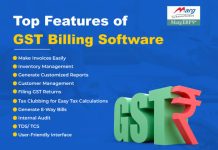Goods and Services Tax (GST) is an indirect tax that has replaced multiple indirect taxes in India, including Central Excise Duty, Service Tax, and State-level taxes like VAT, Entertainment Tax, Luxury Tax, and others. GST was implemented in India on 1st July 2017 and is applicable across all states in India, including Karnataka.
GST accounting is a crucial aspect of any business operating in Karnataka as it involves the maintenance of records, filing of returns, and payment of taxes. In this blog, we will discuss the various aspects of GST accounting in Karnataka.
GST Registration in Karnataka
The first step towards GST accounting is to register for GST in Karnataka. Any business that has an annual turnover of over Rs. 40 lakhs (Rs. 20 lakhs for businesses in North-Eastern states) must register for GST. The registration process is online, and businesses must provide their PAN, Aadhaar, and other details.
GSTIN in Karnataka
Upon successful registration, businesses receive a Goods and Services Tax Identification Number (GSTIN), which is a 15-digit alphanumeric number. The first two digits represent the state code (29 for Karnataka), the next ten digits represent the PAN number of the business, one digit is for entity code, and the last two digits are for check code.
Invoice Formats in Karnataka
Businesses must issue invoices in the prescribed format under GST, which includes details such as the name and address of the supplier and buyer, the GSTIN of both parties, the invoice number, date, and details of goods or services supplied, along with their HSN or SAC codes, the taxable value, and the applicable GST rate.
GST Returns in Karnataka
Businesses registered under GST in Karnataka must file monthly, quarterly, or annual returns, depending on their turnover. GSTR-1 is the return for outward supplies, GSTR-2 is for inward supplies, and GSTR-3 is for monthly returns. GSTR-4 is a quarterly return for businesses with a turnover of up to Rs. 1.5 crore, and GSTR-9 is an annual return.
GST Payment in Karnataka
Businesses must pay GST online through the GST portal, and the payment can be made using various modes such as net banking, credit or debit card, or NEFT/RTGS. The due date for payment of GST is the 20th of the following month for monthly returns.
Input Tax Credit (ITC) in Karnataka
One of the significant advantages of GST is the availability of Input Tax Credit (ITC), which allows businesses to claim credit for the GST paid on their purchases. The ITC can be claimed only if the purchases are used for business purposes, and the suppliers have filed their returns.
In addition to the above-mentioned aspects, there are a few other important points to keep in mind while doing GST accounting in Karnataka.
Reverse Charge Mechanism (RCM)
Under the reverse charge mechanism (RCM), the liability to pay GST on certain goods or services shifts from the supplier to the recipient of the goods or services. Businesses must be aware of the goods or services covered under RCM and must comply with the RCM provisions.
Composition Scheme
Businesses with a turnover of up to Rs. 1.5 crore can opt for the composition scheme, which offers a simplified compliance process and lower tax rates. Under the composition scheme, businesses must pay a fixed percentage of their turnover as GST and cannot claim Input Tax Credit (ITC).
E-way Bill
An e-way bill is a document that must be generated for the movement of goods worth over Rs. 50,000. The e-way bill can be generated on the GST portal, and it contains details such as the name and address of the supplier and recipient, the goods being transported, and the vehicle number.
Audit and Assessment
GST law mandates that businesses with a turnover of over Rs. 2 crores undergo an annual audit by a Chartered Accountant or a Cost Accountant. Businesses must also be prepared for assessments by the tax authorities, where the authorities scrutinize the business’s records to ensure compliance with the GST regulations.
Penalties and Interest
Non-compliance with GST regulations can attract penalties and interest. Businesses must ensure that they comply with the GST regulations to avoid any penalties or legal consequences.
Another important aspect of GST accounting in Karnataka is the treatment of interstate transactions. Businesses must be aware of the different types of transactions and the applicable GST rates.
Interstate Transactions
Interstate transactions are those where goods or services are supplied from one state to another. The GST applicable on interstate transactions is known as Integrated Goods and Services Tax (IGST). The IGST is collected by the central government and distributed to the state where the goods or services are consumed.
Intra-state Transactions
Intra-state transactions are those where goods or services are supplied within the state of Karnataka. The GST applicable on intra-state transactions is known as State Goods and Services Tax (SGST) and Central Goods and Services Tax (CGST). The SGST and CGST are collected by the state and central governments, respectively.
Export Transactions
Export transactions are those where goods or services are supplied outside India. Such transactions are treated as zero-rated supplies, and no GST is applicable. Businesses can claim input tax credit on the GST paid on their purchases and can apply for a refund of the GST paid on exports.
Import Transactions
Import transactions are those where goods or services are procured from outside India. Such transactions are treated as taxable supplies, and the applicable IGST is collected at the time of import. Businesses can claim input tax credit on the IGST paid on imports and can utilize the same for payment of GST on their supplies.
Conclusion
businesses must be aware of the different types of transactions and the applicable GST rates. Compliance with the GST regulations is crucial to avoid any penalties or legal consequences. Businesses must also ensure that they maintain accurate records and file returns on time to avoid any audit or assessment issues.
Other Related Blogs: Section 144B Income Tax Act








